Illustration: Craig Stephens
China’s
on the increasingly violent Hong Kong protests is burnishing its image as a responsible stakeholder in the international system. That is hardly the outcome the protesters want, but it is the result they will achieve the more they test the pacifist will of the city’s government and, ultimately, that of Beijing – up to a point.
It is quite obvious that Beijing would not have tolerated anything close to the level of anarchic criminality masquerading as democracy on the streets of Hong Kong in any part of mainland China.
The
massacre of 1989 occurred precisely because the communist authorities did not want the Beijing-centred unrest to spread and undermine its rule on a national scale. Dissent that is suppressed decisively in the capital loses momentum in the provinces, which are more populated than capitals.
This time, China has held off on undertaking a Tiananmen-style crackdown in Hong Kong because the territory is not just another part of China. It is a special administrative region which enjoys a high degree of autonomy under the “one country, two systems” formula. Beijing wishes to tell the rest of the world that it abides by
of Hong Kong’s return in 1997.
That event marked a triumphant rejection of Hong Kong’s 150-year colonial history and the city resuming its place in thousands of years of Chinese history. Immediately, however, Hong Kong became a new interface between China and the rest of the world. How well Beijing respected the terms of Hong Kong’s transfer from Britain reflected on China’s own standing as a rising power with global interests.
That was the catch. Hong Kong’s return to China would become an indicator of China’s own return to the world order since Deng Xiaoping
three decades of autocratic and impoverishing Leninism in favour of prosperity at home and peaceful engagement abroad.
For China to
on Hong Kong’s protesters would undercut a far larger national project: the restitution of China’s place at the table of the great powers, a place that it had enjoyed before European colonialism from the 16th to the 20th centuries pushed China to the periphery of global politics.
Admittedly, Beijing’s
in Hong Kong’s politics has diluted its claims to be upholding “one country, two systems”. The
, no matter how the Hong Kong authorities sought to justify it, revealed the long hand of Beijing. Hong Kong erupted in existential protest.
However, the way in which
, flaming arrows and corrosive liquid have become weapons of “democracy” in Hong Kong – whose former democratic colonial master would
anything close to what is occurring today – goes far beyond the purview of democratic dissent that Hong Kong enjoys even under the dual formula.
Such unrest on the streets of London, New York, Brussels or Berlin, to say nothing of Tokyo, Seoul, New Delhi, Jakarta or
, would have been met with a show of decisive force.
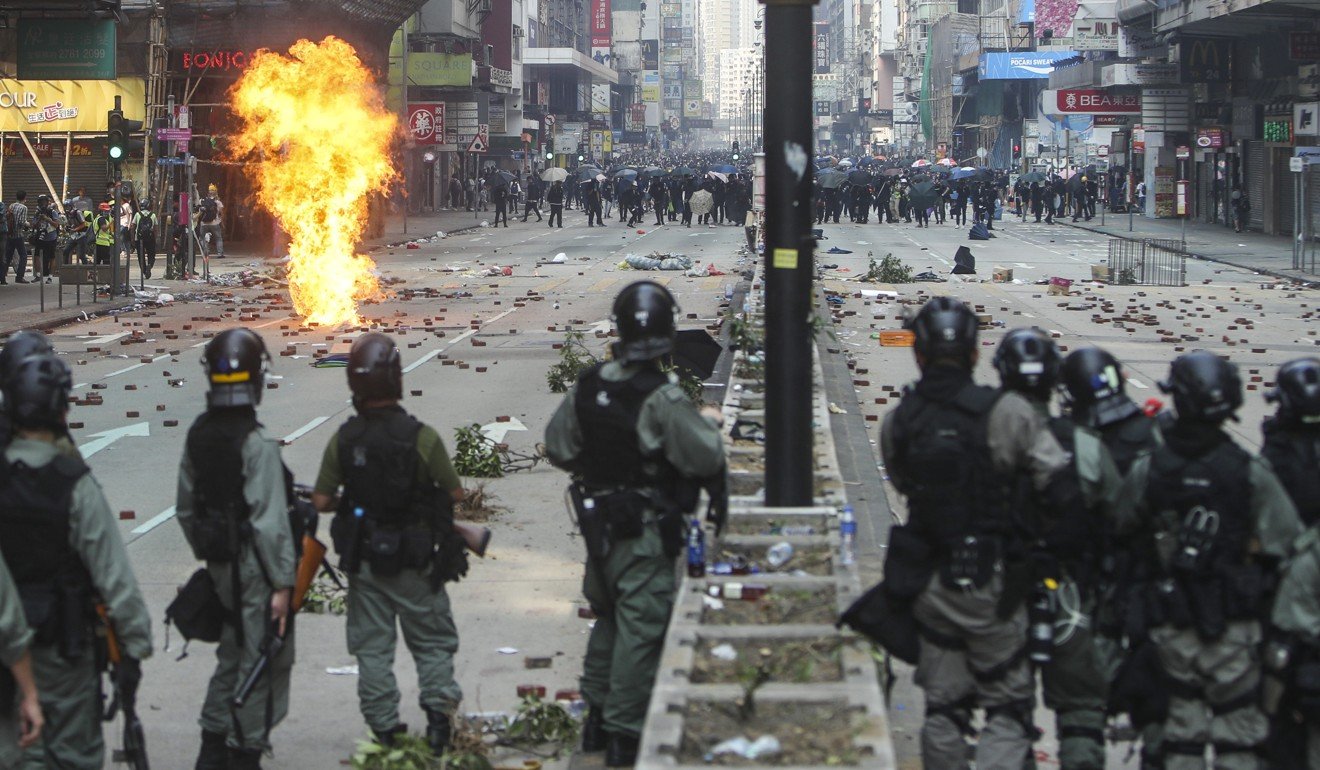
Riot police face off against anti-government protesters on Nathan Road in Tsim Sha Tsui on November 18. Photo: Winson Wong
Such force has not been used because China prioritises its international standing over what is happening in Hong Kong.
While China cannot afford Hong Kong to become the next Tiananmen, it can well afford to see the city recede into global
. What does not matter economically hardly matters politically.
Should China intervene militarily in Hong Kong, it would invite economic sanctions from the West that would put more strain on an economy already
by the trade war with the United States. Hong Kong would become a test case of China’s peaceful rise in world affairs.
Critics would argue that a country which crushes its citizens can never be entrusted with responsibility to guard the global commons. China would become a Western pariah, as it did for a long while after Tiananmen. In a word, Hong Kong would become a Trojan horse in China. It would damage the whole country.
By contrast, the havoc created by violent protesters in Hong Kong damages the city, not the mainland. Big money departs, tourists
, potential investments go elsewhere, small businesses flounder and ordinary Hongkongers complain of what brought this curse on the city. Hong Kong looks to Beijing. Beijing looks away because its hands are tied by “one country, two systems”.
The protests affirm Hong Kong as a separate system. China remains one country, immune to the incipient separatism of that system.
Internationally, Beijing does not need Hong Kong to deal with the global economy in the same way it did before joining the World Trade Organisation in 2001.
Even if the city were to
through the attrition of prolonged strife, China would continue to function legally and materially within the WTO. Hong Kong’s economic irrelevance to the world would not destroy China’s place in that world. It would destroy Hong Kong’s place in China.
Hong Kong’s economic irrelevance to the world would not destroy China’s place in that world. It would destroy Hong Kong’s place in China
China knows this. The protesters know this. Each knows that the other knows. So why is the violence continuing?
Conspiracy theories suggest that the West is
the protests by financing the violence, or that Beijing itself is using the violent demonstrators as agents provocateurs to discredit the wider, peaceful demonstrations. It is impossible to tell which sinister theory is true.
However, no mass protest, particularly one that persists for months without central leadership, can last because of purely external support. No matter who is behind the violence, only the Hong Kong people are behind the
of popular anger against an entrenched autocracy that runs through the corridors of power from Beijing to Hong Kong.
Nevertheless, China has the upper hand. It can afford to wait this crisis out. After all, the protests have not spread to the mainland. Instead, Chinese there are aghast at the damage which the violent protesters are inflicting on their own city.
If anything, the protests
“one country” in China even as they might end up strengthening “two systems” in Hong Kong. China would not collapse as a result.
All this is true up to a point. If the conflagration threatens to harm core mainland interests – particularly in the form of China’s military presence in the city or people from the mainland in Hong Kong – China might decide that a crackdown is necessary to protect “one country” from “two systems”.
In that case, the international cost of another Tiananmen would be small compared to the gains of upholding Chinese sovereignty.
Derwin Pereira is founder and CEO of Pereira International, a Singapore-based political consultancy. He is also a member of Harvard University’s Belfer Centre for Science and International Affairs

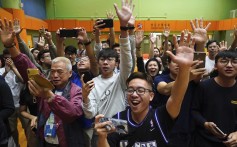
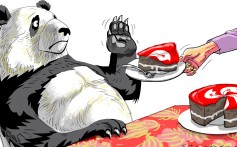
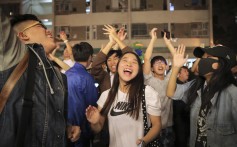


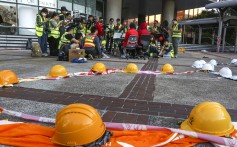
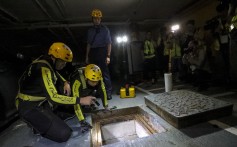


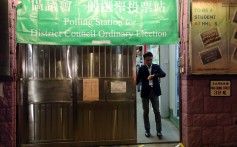
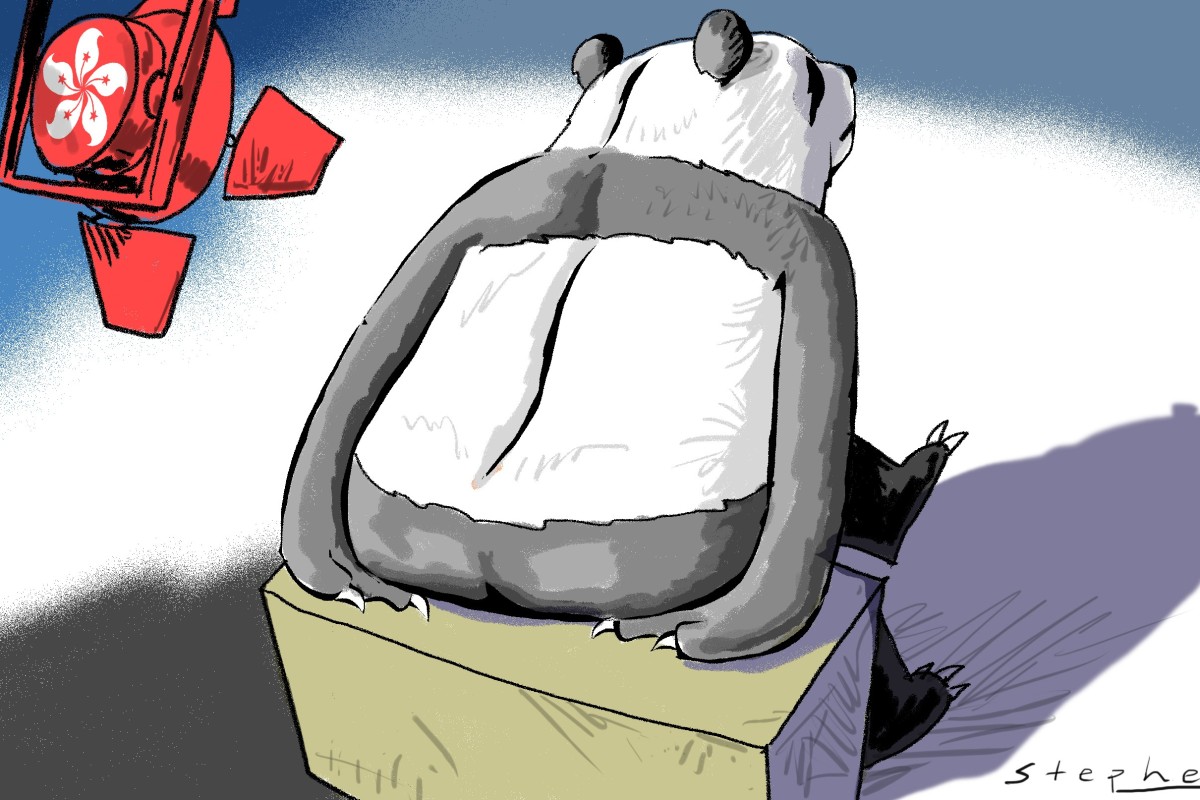
Comments